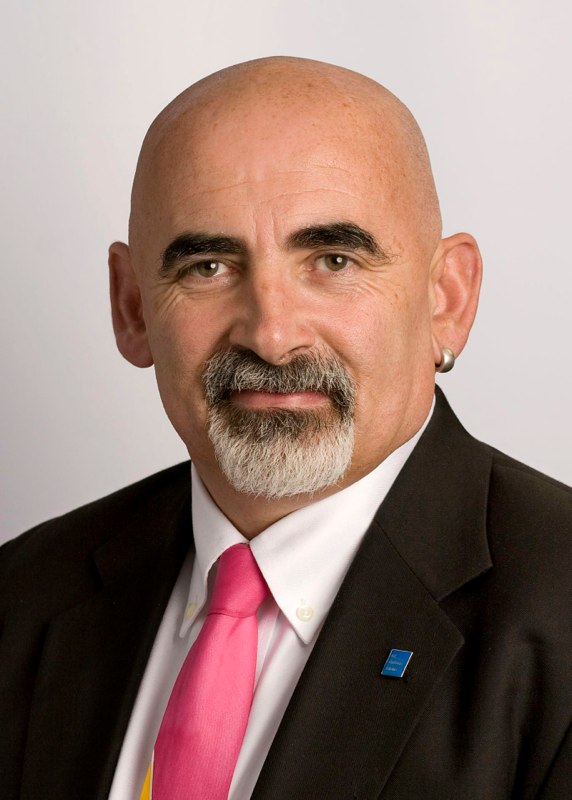2 Simple Changes to Create the Schools our Children Need

It will cost no more than what we’re doing now, says Dylan Wiliam…

- by Dylan Wiliam

Currently, according to the results of the latest round of international PISA tests, approximately 120,000 students leave school in England each year without the literacy they need to participate effectively in society, and around the same number lack the maths skills they need to make even the most basic financial decisions.
Moreover, as employers make increasing use of technology, workers need higher and higher levels of education.
There is, predictably, no shortage of solutions being offered to address this challenge, but unfortunately, most of the ideas being pursued in England currently will have little, if any impact, on student achievement.
Misguided reform
Perhaps the main reform at national level in England over the last 30 years has been the expansion of school choice, both by giving parents more of a say in the schools their children attend, and also through diversifying the kinds of schools available, first through the provision of City Technology Colleges, then via specialist schools, academies, and most recently, so called ‘free schools’.
The problem is that none of these measures is likely to have a detectable impact on the average achievement of students in England, since the academies and free schools are no better, on average, than state comprehensive schools.
More recently, reforms have, sensibly, looked at ways to improve classroom teaching directly – but many of these approaches have been either been poorly focused, or focused on things that are unlikely to help students learn more.
Policymakers often talk about doing ‘what works’, but this is the wrong question. Instead we should be asking how much additional achievement we will get, how much it will cost, and whether an initiative can be successfully implemented in a particular school.
When we do this, we find that many of the reforms currently being pursued by schools – such as grit, growth mindset, and social and emotional learning – are likely to have small benefits, but are still worth pursuing, because they do not take much time.
However, when we look at the cost benefit trade-off, and also at the feasibility of implementation, there are two things that English schools could do that stand out as clearly much more cost-effective than the others: increasing teacher skill, particularly in the use of classroom formative assessment; and building a school curriculum on a foundation of knowledge, rather than skills.
Teacher development
The question of whether good teachers are born or made is as old as education itself, and for many years, the evidence, such as it was, pointed to teacher talent as being more important than training or experience.
Right now a good teacher is more effective in her first year than an average teacher will be after twenty years in the classroom. However this doesn’t mean that teachers cannot improve. As the work of Anders Ericsson shows, in most fields of human endeavour, elite levels of performance are much more a matter of practice than talent.
Talented individuals have a head start to be sure, but after a year or two, what matters more is how hard you are working at getting better. And in most fields, 10 years of focused, disciplined effort makes most individuals as good as the best.
I often ask headteachers how good their school would be if they could fill every teaching job in the building with their choice of any teacher in the county, and most conclude they would have an exceptional school.
In response, I point out that they can have that school, in ten years’ time, if they build it themselves.
What this requires, then, is that every teacher accepts two things. The first is that everyone commits to getting better, not because they are not good enough, but because they can be even better, and when teachers do their job better, their students will be healthier, live longer, and contribute more to society.
The second is that every teacher needs to get better at the things that the best available evidence shows has the biggest impact on student achievement.
And right now, this is classroom formative assessment—teachers continuously finding out what their students are learning and making real time adjustments to their instruction to better meet their students’ learning needs.
A recent study by the Educational Endowment Foundation found that supporting teachers’ development of classroom formative assessment through the use of school-based teacher learning communities increased the rate of learning in key stage 4 by 25%, at a cost of £1.20 per student per year.
Focus on knowledge
The other thing that schools need to focus on is putting knowledge back in to the curriculum. In recent years, many schools have focused more on teaching skills rather than content.
The logic is attractive. If we just teach our students to think critically, then they can use such skills wherever such skills are needed, and similar arguments are made for collaboration, communication, creativity and problem-solving, often grouped together as “21st-century skills” (an odd name when you think about it, because these capabilities were pretty useful in the 17th Century).
However, the more important point is that these ‘skills’ aren’t really skills at all, but collections of skills that bear superficial similarities. Critical thinking, for example, is different in every subject.
We know this because no amount of training students to think critically in history has any impact on their ability to think critically in mathematics. As ED Hirsch Jr has pointed out: “Skill is content and content is skill.”
Affordable improvement
The two changes I have described above will cost no more than what we are doing now. All schools provide professional development for their teachers, but currently it is poorly focused, and in particular, treats professional development as a process of knowledge acquisition.
We need to treat teacher professional development as a process of habit change, helping teachers increase student engagement in their classrooms, and responding in a more agile way to their needs.
We also need to think of our curricula as devices for building knowledge in our students. Many contemporary writers suggest that textbooks are somehow old hat, and that what we really need to do is to find ways of helping teachers, schools and districts to share their learning materials online.
The problem is that a collection of learning materials is no more a curriculum than a pile of bricks is a house. What our students need are carefully organised, sequential, structured introductions to school subjects – in other words, textbooks.
With every teacher committing to continuous, career-long professional development focused on classroom practice, and a curriculum that is designed to build knowledge in our students, we really can create the schools our children need.
Dylan Wiliam is emeritus professor of educational assessment at University College London, an authority on formative assessment, and the author of Creating the Schools Our Children Need (learningsciences.com).










